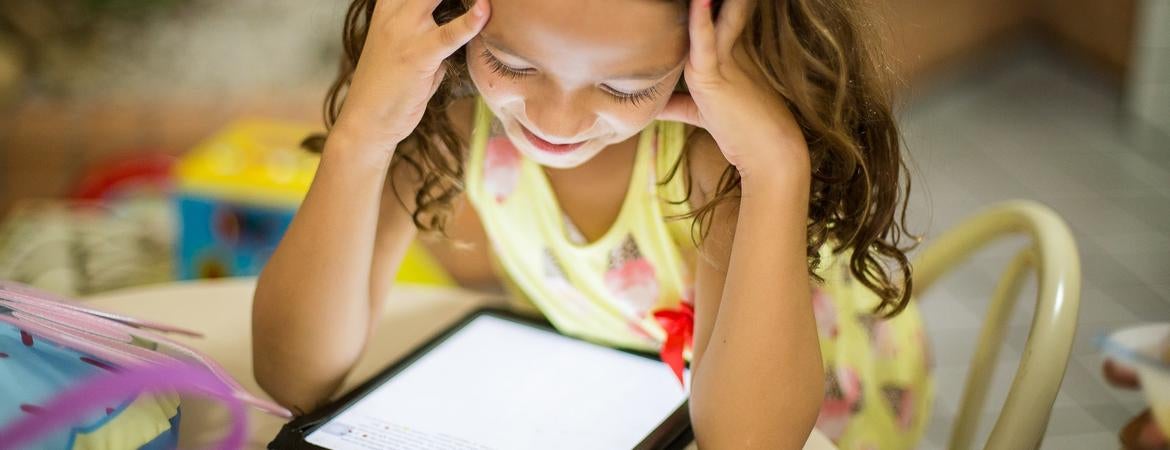
When the coronavirus pandemic forced schools nationwide to close in mid-March, education researchers at the University of California, Riverside, quickly pivoted to figuring out how best to support teachers during the transition to remote learning.
Their efforts have resulted in a new resource guide for teachers looking to strengthen their relationships with students in the early elementary-school grades, even as instruction continues remotely.
The researchers are part of Smooth Sailing, a bicoastal project partially based out of UCR’s Graduate School of Education. The group investigates how to ensure a successful transition into the early school grades for students with autism, which currently affects an estimated one in 54 children.
Now in its seventh year, the project is supported by the U.S. Department of Education’s Institute of Education Sciences, or IES. Its principal investigator is Jan Blacher, a distinguished professor of education at UCR and director of SEARCH, the University of California’s first autism resource center focused exclusively on family needs. The project has a sister site in Massachusetts, which is led by Co-Principal Investigator Abbey Eisenhower of the University of Massachusetts-Boston.
“The original Smooth Sailing study was designed to look at correlates of successful transition into the early school grades among students with autism,” said Yasamin Bolourian ’19, who received her doctorate in special education from UCR and now serves as a postdoctoral researcher on the Smooth Sailing project.
“What we learned from the initial study is that these students’ relationships with their teachers are often conflictual, and that there’s a lack of closeness — more so than for other students who don’t have autism,” Bolourian added.
Based on those results, the Smooth Sailing team proposed a professional development program for general education teachers who have students with autism in their classrooms, which received an additional round of IES funding.
Over the past two years, the researchers have worked directly with teachers in Southern California and Massachusetts to develop eight learning modules. Designed to educate general education teachers on autism and its associated behaviors, the modules also present strategies teachers can employ to have more positive interactions with students with autism and foster better communication with those students’ parents, Bolourian said.
The researchers were on the verge of beginning to test the program’s effectiveness in classrooms when the coronavirus pandemic forced schools to close, including those of the teachers with whom the Smooth Sailing team had been collaborating. Undeterred, the researchers continued to work with the teachers virtually, adapting many of their strategies to accommodate remote instruction.
“One thing we gleaned from this experience is that the entire Smooth Sailing program can be delivered remotely,” Bolourian said. “We continued to provide the intervention and work with teachers as coaches, with some modifications given the current educational climate. But we’ve also taken this opportunity to really flesh out some of the teachers’ needs — what do they see as the strengths and challenges associated with our program?”
In particular, Bolourian said the teachers expressed a need for strategies to continue to build relationships with their students with autism, both in the classroom as well as under virtual instruction. That’s when Bolourian stepped in to lead the development of the resource guide, largely on the Smooth Sailing team’s own time.
With the teachers’ input in mind, the new resource guide developed by the researchers is nonacademically focused. Instead, its authors offer six strategies for establishing more meaningful relationships through a computer screen, such as reaching out through an online newsletter, text message, or recorded video; celebrating successes by organizing a virtual awards ceremony; or even hosting a Netflix viewing party.
Bolourian noted that while plenty of digital education resources and platforms have been made available since schools closed several months ago, none seem to have approached the issue of positive relationship-building between teachers and students. This is a key element of academic and social success for young children — especially young children with autism — and often affects their long-term outcomes.
Moving forward, the Smooth Sailing team has plans to resume piloting its program in fall. The researchers are modifying it to ensure their strategies can be delivered in person or remotely. In the meantime, Bolourian said the researchers hope the resource guide will come in handy for teachers as they prepare and plan for the upcoming school year, regardless of the format instruction takes.
“There are so many passionate teachers who love and miss their students during school closures, but real-world challenges right now are getting in the way of their efforts,” Bolourian said. “We hope this resource helps address some of those challenges.”
Learn more about the Smooth Sailing project here and here.
Header image by Patricia Prudente via Unsplash




